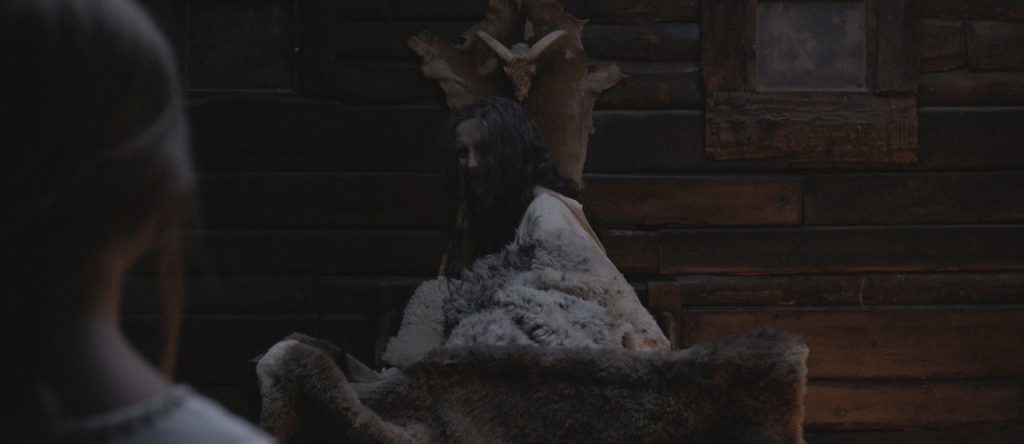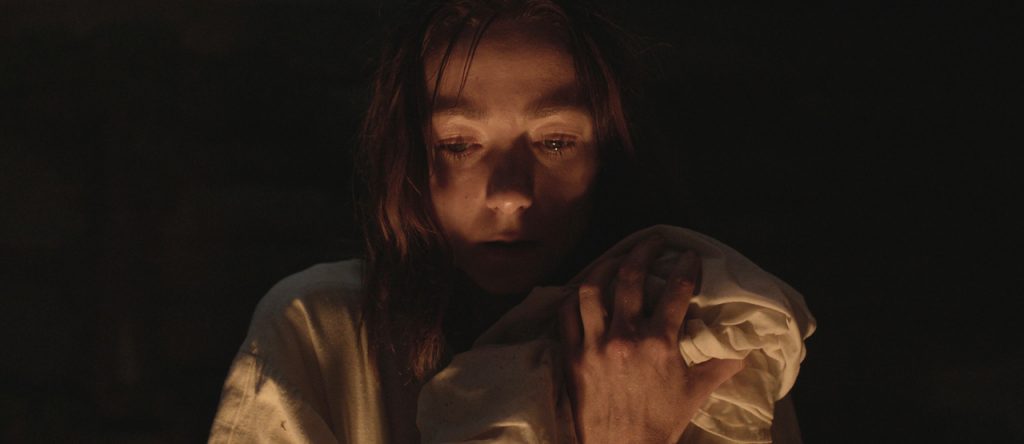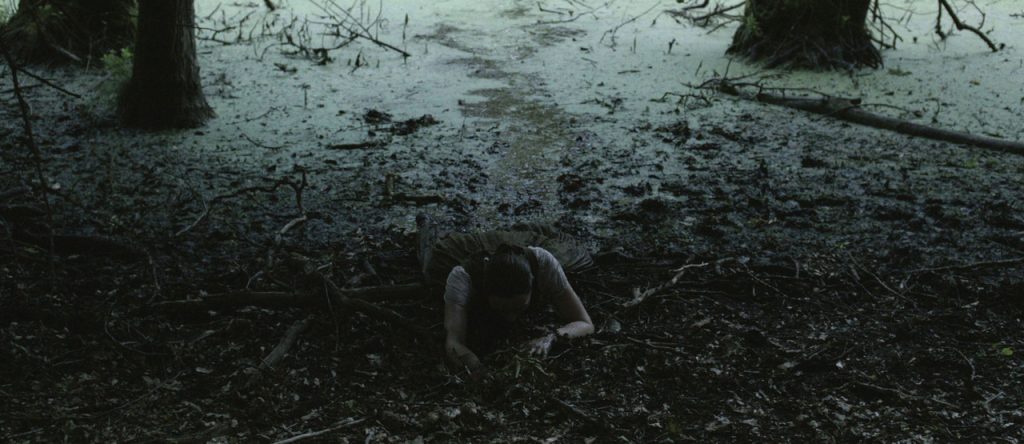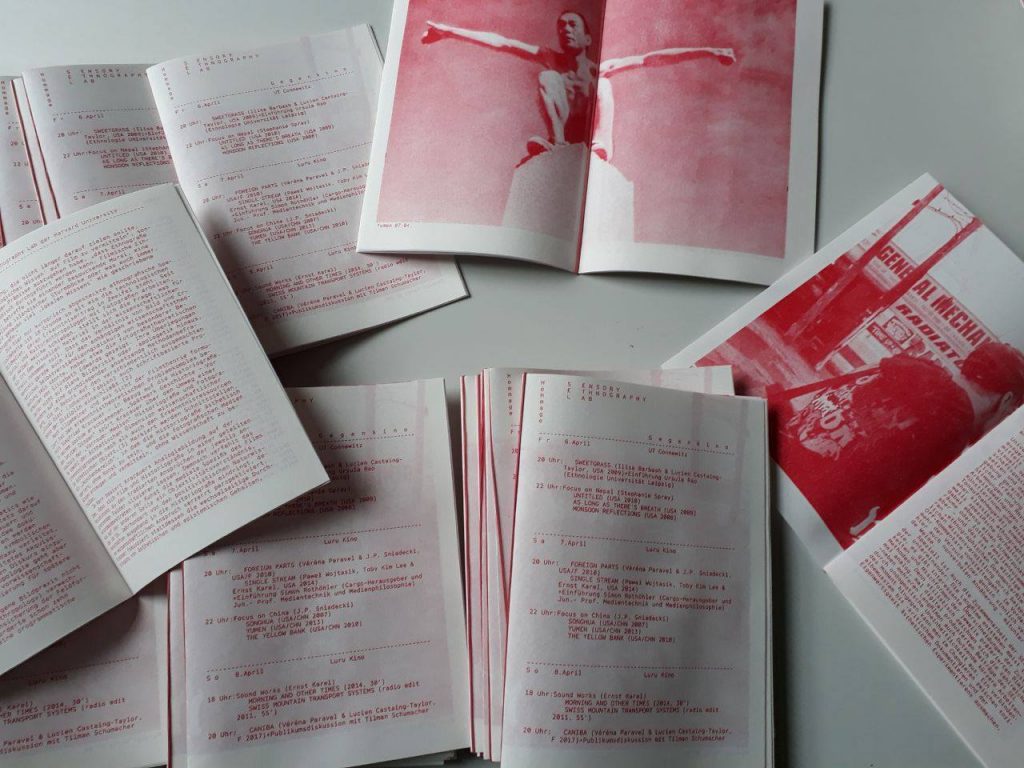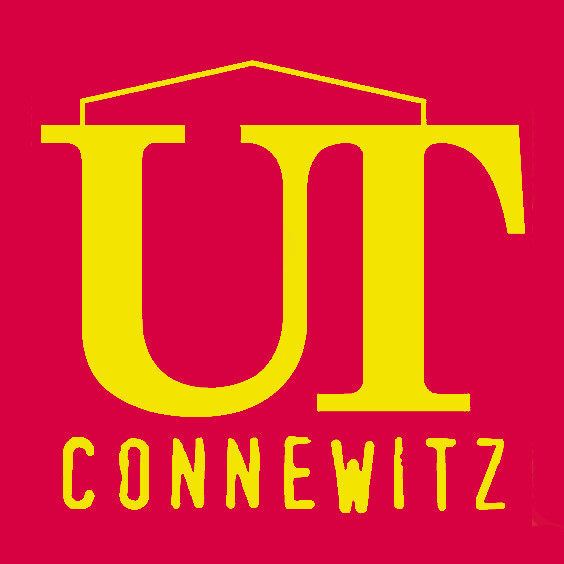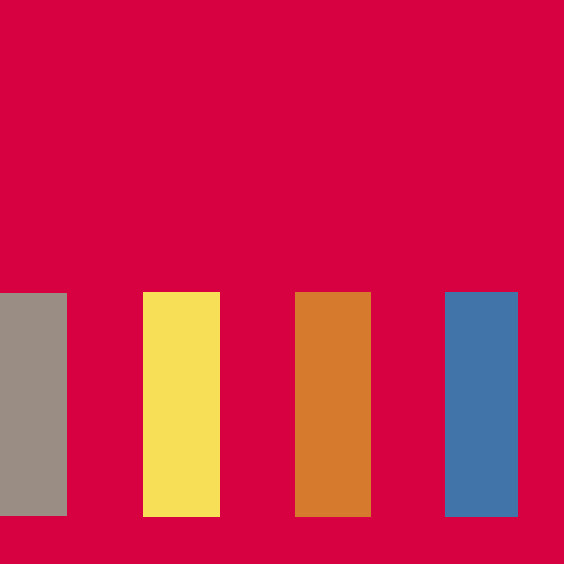The clock’s ticking… GEGENkino 2018’s starting today at 9pm at Luru Kino in der Spinnerei with Lukas Feigelfeld’s massive witch hunt flick Hagazussa – proof that there’s still some great unseen German horror films.
| 05 April 2018 Luru Kino | OPENING FILM |
| 9 PM | HAGAZUSSA – A HEATHEN’S CURSED AT 2017, 102’, DCP, Director: Lukas Feigelfeld OmeU/OV with English subtitles |
HAGAZUSSA – A HEATHEN’S CURSED
AT 2017, 102’, DCP, Director: Lukas Feigelfeld, Actors: Aleksandra Cwen, Claudia Martini, Tanja Petrovsky, OmeU/OV with English subtitles
The young Albrun must witness how her mother is stigmatized as a witch and finally consumed by the plague in the medieval solitude of the Alps. Many years later, she still lives outside of the vil-lage, tends goats, cares about her newborn and avoids the company of the community. When a newly-acquired friendship turns bitter, Albrun gives free rein to her shadowy soul. Lukas Feigelfeld’s graduation film at the dffb is an atmospheric horrorfilm, an original piece of genre art that does not exhaust itself in the processing of standard situations. HAGAZUSSA in fact dares to step out of the overly secure terrain of the familiar, and hypnotically tells a story of loneliness and delusion, superstition and violence. In the face of the outcast, landscapes become apparent, shaped by privations and abominations. While the visual arrangements unclose an opulent expanse, the cello of the doomy drone soundtrack re-lentlessly creeps into the depths of subconscious. A film that tracks one, touches, erodes.
As you may know, on Sunday, 6pm, at Luru Kino you’ll get the rare chance to hear some of the Ernst Karel’s sound works as part of our homage to Harvard’s Sensory Ethnography Lab; namingly:
MORNING AND OTHER TIMES
USA 2014, R: Ernst Karel, Audio, 30’
SWISS MOUNTAIN TRANSPORT SYSTEMS, RADIO EDIT
USA 2011, R: Ernst Karel, Audio, 55’
Here’s an excerpt from Aby Bliss’ review of SWISS MOUNTAIN TRANSPORT SYSTEMS for British magazine The Wire #333:
»[E]ven devoid of context, the sounds trapped on tape are curiously absorbing. They can be both soothing and suspenseful, as on ›Oberterzen-Unterterzen‹, where the low rumble of machinery and a keening wind are punctuated by periodic clankings and brief snatches of birdsong. The sense soon emerges of a landscape idealised yet only half-conquered by humans. The illusion of gliding, godlike, up a mountainside rests upon loud and often ungainly machinery, as heard on ›Stans-Kälti‹, where strains of (stereotypically) Swiss cowbells are almost drowned out by the violent exertions of the funicular train. Karel also hints at coming obsolescence: the helicopter heard on ›Simplon Pass‹ is transporting materials to a road builder, even as systems only recently documented by Karel have since been removed. Transport is less solid than its imposing infrastructure suggests.«
…and some general words on the Sensory Ethnography Lab by The Wire:
»Sensory ethnography has emerged in response to the way that anthropology has represented its human subjects in media, primarily through film. This new discipline, which has its roots in field recordings, sound art and ethnographic films, tries to develop a way of approaching anthropology’s social concerns, maintaining its methodological imperative to clearly and accurately represent its subjects, while at the same time acknowledging that the audience for such research also makes up part of the meaning that it creates. In short, sensory ethnography is an attempt to resolve the subjective, artistic approaches needed to make effective and engaging work out of empirical data, at the same time as accurately representing its observations.«
Only three more days to go only ‘til GEGENkino #5 starts. Here’s our festival trailer and your chance to get a glimpse of the diversity of things in our programme this year. Check it!
Big thanks to Katharina Wittmann for the teaser!
The booklet for the Sensory Ethnography Lab homage is out! Designed by Sophia Eisenhut. Also available as online and download version: https://view.publitas.com/gegenkino/sel-2018
A Zambian Fairy Tale: Rungano Nyoni Discusses Her Debut “I Am Not a Witch” on Notebook
Here’s an interesting short interview with Rungano Nyoni about her singular, strange witch-hunt fairy tale »I Am Not A Witch« (for MUBI Notebook).
»I wanted to make it a fairy tale because I found a really good Zambian way of saying the story, without making it about Zambia. I grew up on fairy tales. I’ve always wanted to do this, actually. In a way, I was trying to get away—perhaps as a first-time filmmaker this is a bit of a cliché—I was trying to get away from ›the arc.‹ It’s always ›the arc, arc, arc arc,‹ and I was trying to do something different. I was trying to do something that I grew up with, which is that my family used to tell me fairy tales and they were really particular. Fairy tales in general are very strange, but Zambian ones mix genres. They’re for kids, but they’re really violent, and they’re funny, and they mix magic realism. All of these things I wanted to take for my film. They are really musical. I was trying to do that.«
Make sure not to miss its Leipzig premiere at GEGENkino 2018: Luru Kino in der Spinnerei, 12th April, 10pm.

